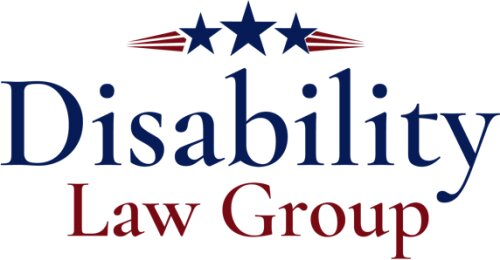Best ADR Mediation & Arbitration Lawyers in West Virginia
Share your needs with us, get contacted by law firms.
Free. Takes 2 min.
Or refine your search by selecting a city:
List of the best lawyers in West Virginia, United States
About ADR Mediation & Arbitration Law in West Virginia, United States
Alternative Dispute Resolution (ADR) in West Virginia refers to processes like mediation and arbitration that help people resolve disputes without going to court. Mediation is a voluntary process where a neutral third party called a mediator assists the parties in reaching a mutually acceptable agreement. Arbitration is a more formal process in which an arbitrator hears both sides and makes a binding decision. ADR is widely used in West Virginia for family law matters, business disputes, construction conflicts, employment disagreements, and more. These methods are praised for being faster, less expensive, and less adversarial than traditional litigation.
Why You May Need a Lawyer
Having an attorney experienced in ADR mediation and arbitration can be highly beneficial. Here are situations where legal help may be crucial:
- You are facing a dispute in business, employment, or real estate that you do not want to take to court.
- Your contract requires you to participate in mediation or arbitration before filing a lawsuit.
- You need guidance on your rights and the best negotiation strategies in mediation.
- You are unsure how to prepare for an arbitration hearing or what evidence is allowed.
- You want to ensure any agreement reached in mediation is legally binding and enforceable.
- The other party is represented by counsel and you wish to have equal representation.
- You want to appeal or challenge the outcome of an arbitration.
Local Laws Overview
West Virginia recognizes and encourages the use of ADR through state laws and court rules. The state has adopted the Uniform Arbitration Act, establishing legal standards for enforcing arbitration agreements and awards. Courts regularly refer civil cases-such as family law matters, small business disputes, and construction claims-to mediation before a trial is scheduled. Some courts run their own mediation programs, while others rely on third-party providers.
Mediation remains voluntary in most cases, meaning parties are not compelled to accept any resolution unless they agree. Arbitration generally becomes binding if both parties agree in advance, often through a contract clause. However, some types of cases, such as certain criminal matters or public policy issues, may not be eligible for ADR. Confidentiality is typically protected in mediation, but arbitration awards may be filed in court and, in some circumstances, become public record.
Frequently Asked Questions
What is the difference between mediation and arbitration?
Mediation is a collaborative process where a mediator helps parties negotiate a settlement. The mediator does not decide the outcome. Arbitration is more like a private trial, where an arbitrator hears evidence and arguments and makes a binding decision.
Are mediation and arbitration legally enforceable in West Virginia?
Mediation agreements are enforceable if both parties voluntarily sign a written settlement. Arbitration awards are enforceable in court under the West Virginia Uniform Arbitration Act.
Do I have to participate in mediation or arbitration if I am sued?
Sometimes, yes. Many contracts require mediation or arbitration before court action. Additionally, some West Virginia courts may order mediation before a trial can proceed.
How much does mediation or arbitration cost?
Costs vary depending on the complexity and the provider. Mediation can range from a few hundred to several thousand dollars, while arbitration may cost more due to formal proceedings and longer sessions.
Can I bring a lawyer to mediation or arbitration?
Yes, you have the right to retain legal counsel for both mediation and arbitration proceedings.
What types of cases are best suited for ADR in West Virginia?
Contract disputes, family matters, employment issues, property disagreements, and personal injury claims are commonly resolved through ADR.
Is ADR confidential?
Mediation is generally confidential, meaning discussions cannot be used in court if the matter is not resolved. Arbitration may be private, but the award could be filed in public court records.
Can an arbitration decision be appealed?
Arbitration awards are final and binding with very limited exceptions, such as evidence of fraud or misconduct.
How do I find a mediator or arbitrator in West Virginia?
Many private professionals and court programs offer mediator and arbitrator lists. It is important to select someone experienced in the area relevant to your dispute.
What are the advantages of ADR over traditional litigation?
ADR is generally faster, less expensive, private, and less adversarial. It also gives the parties more control over the outcome.
Additional Resources
Consider reaching out to these organizations and resources in West Virginia:
- Supreme Court of Appeals of West Virginia - Mediation Program
- West Virginia State Bar - Lawyer Referral and Information Service
- West Virginia Department of Education - Special Education Mediation
- Better Business Bureau Dispute Resolution Services
- American Arbitration Association - Regional Offices
- Community Mediation Centers throughout West Virginia
Next Steps
If you need legal assistance with an ADR matter in West Virginia, start by gathering all relevant documents, including contracts, correspondence, and any prior settlement offers. Contact a qualified attorney experienced in mediation and arbitration. They can review your case, advise you on your options, and represent your interests. You may also contact mediation and arbitration organizations or the state bar for referrals. Remember, timely action can be crucial in protecting your rights and maximizing your options for a favorable outcome.
Lawzana helps you find the best lawyers and law firms in West Virginia through a curated and pre-screened list of qualified legal professionals. Our platform offers rankings and detailed profiles of attorneys and law firms, allowing you to compare based on practice areas, including ADR Mediation & Arbitration , experience, and client feedback.
Each profile includes a description of the firm's areas of practice, client reviews, team members and partners, year of establishment, spoken languages, office locations, contact information, social media presence, and any published articles or resources. Most firms on our platform speak English and are experienced in both local and international legal matters.
Get a quote from top-rated law firms in West Virginia, United States — quickly, securely, and without unnecessary hassle.
Disclaimer:
The information provided on this page is for general informational purposes only and does not constitute legal advice. While we strive to ensure the accuracy and relevance of the content, legal information may change over time, and interpretations of the law can vary. You should always consult with a qualified legal professional for advice specific to your situation.
We disclaim all liability for actions taken or not taken based on the content of this page. If you believe any information is incorrect or outdated, please contact us, and we will review and update it where appropriate.
Browse adr mediation & arbitration law firms by city in West Virginia
Refine your search by selecting a city.










